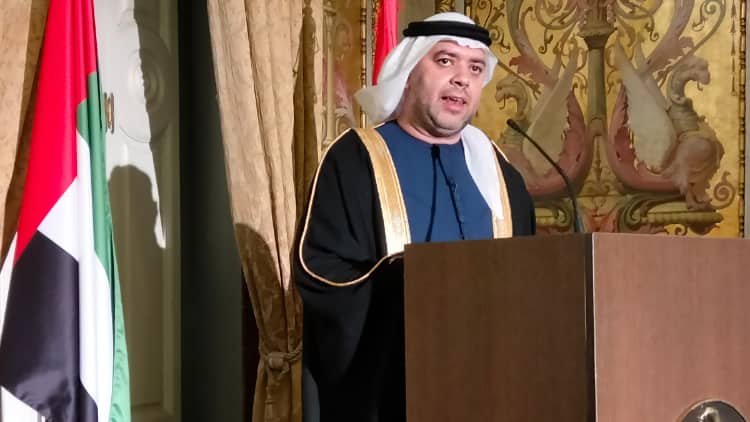The Diplomat
The Rey Juan Carlos University (URJC) brought together this week two experts on European issues, Antonio Gutiérrez Limones, President of the Spanish Delegation to the Council of Europe and President of the Senate Foreign Affairs Committee, and Ramón Luis Valcárcel Siso, former Vice-President of the European Parliament, in a new session of the ‘Dialogues 25’ series, focusing on this occasion on the future of Europe.
In the assembly hall of the University’s Quintana headquarters, the two experts discussed topics such as the reform of the Treaties following the Conference on the Future of Europe, the energy crisis, and security and defence, values and democracy, among others.
The dialogue was presented and moderated by the Deputy Vice-Rector for International Relations, Ángeles Cano Linares, who explained that this event on the overview of the future of Europe “aims to promote the involvement of the University in the issues that most concern the entire university community and to contribute to greater European integration, something that has already been demonstrated by the participation in the EULIST university alliance”.
Regarding the Conference on the Future of Europe, the speakers concluded that it had been an excellent event because many issues had been addressed and the population had been very participative, but more could have been done and important issues were not addressed in the end.
On the question of unanimity in decision-making, they insisted that Europe should not be an element that could be a factor in the decline, but quite the opposite. In the words of Antonio Gutiérrez Limones, “if we want to be a global governance we have to change and become a political system with decision-making capacity”. Ramón Luis Valcárcel also dared to say that, “convention yes, despite the risks”.
Other topics discussed included the importance of defining Europe; the war in Ukraine and Putin’s invasion; democracy in Europe; and the energy crisis.
On dependence on natural resources, questions such as: are we strong enough to play against the rest of the powers, or will our weaknesses prevent us from achieving it, or are we willing to sacrifice an entire generation if there are alternatives?
In the words of Ramón Luis Valcárcel, “we have put all our eggs in one basket and this basket, which was Russia, has fallen”. They believe that, much to our regret, this can only be solved by still betting very strongly on gas and oil, because, even if we give a boost to the Green Pact, which we must do, it will not bear fruit for another 8 or 10 years.
At the end of the debate, the issue of ageing and care for the elderly in Europe was put on the table, a very neglected and forgotten subject, and the importance of incorporating it into the EU’s work agenda was pointed out.
The aim of these dialogues is to open the doors of the University to citizens, through conversation with them, and to talk openly about the challenges and crossroads that arise, such as security, migration, health, the energy crisis, the economy and the defence of freedom and democracy, among others.






